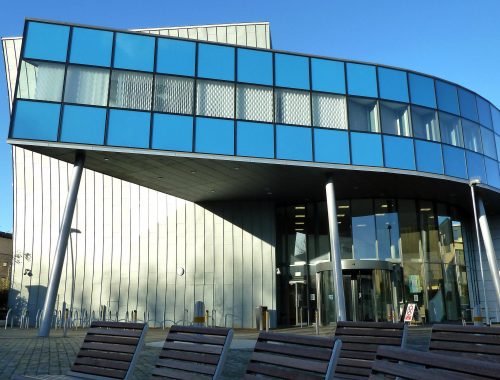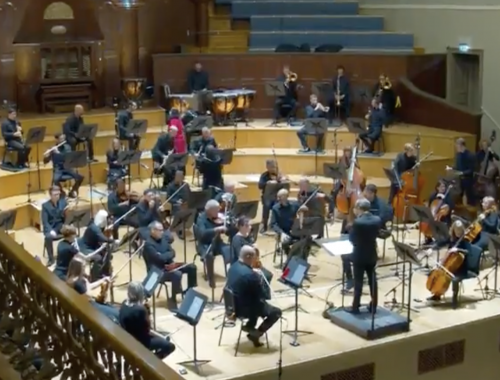ACCEPTED: A REFLECTIVE LOOK AT A SUCCESSFUL WORK PLACEMENT APPLICATION
By Ethan Tohill
For as long as I can remember, I knew that my interest in television went beyond the act of simply viewing programmes for enjoyment. I always found myself wondering how the programmes themselves were made, be they fiction or non-fiction. I was fascinated by the thought of what occurred behind the scenes to produce quality television ready for broadcast. This interest was one of the main reasons I chose to do a degree in Broadcast Production and added to my delight that a module of work-based learning would contribute to the attainment of my degree. As Gregory, Healy and Mazierska point out, “work experience is important because it will often lead to real, paid, satisfying jobs and careers. There is nothing more convincing, at interview or application stage or when pitching for work, to have positive proof that you can do the job – and great work experience can give you this proof.” (63)
After selecting to do the module at the end of second year, I quickly began my search for potential work placement opportunities. I had been offered to be a part of the SARC Radio team by a senior lecturer at QUB due to my experience in Radio, but although I was very grateful for this option, I was determined to develop my skills in television, a field I wasn’t as well-versed in. I knew of a family friend who worked for several decades as producer for the BBC and was involved in both television and radio. My first move was to contact her and ask if she could give me any advice. She gave me the contact details for Ronan McCloskey, the owner of the television production company Ronin Films. My first contact with Ronan and the application process is the aspect of my early experience in the module that I wish to reflect on. I will utilise Gibbs’ Reflective Cycle to examine the things I did well, and also the things I could have done better. Reflective practice like this is highly useful, as Kathleen McMillan points out, “reflective behaviour is regarded as a key aspect of continuing professional development, ensuring that practitioners constantly review their patterns of work and keep up-to-date with developments in their field of expertise.” (20)

DESCRIPTION: I initially contacted Ronan over email. I introduced myself and explained my circumstances, and that I had been given his contact details by my contact in the BBC. In the email I also attached two of my best pieces of work from my time in university so far, namely two sound design for screen pieces I had made in second year. I explained to him that this was an aspect of television production that I was particularly interested in, but I made it clear that I was hoping to develop my skills in as many aspects as possible, given that Gregory, Healy and Mazierska rightfully point out that “today’s employee is expected to offer a wider portfolio of skills.” (16) Shortly thereafter, Ronan and I had a zoom meeting where we talked further about the prospect of working together, and eventually Ronan agreed to take me on.
FEELINGS: My feelings during the process were those of excitement and apprehension. I was excited at the prospect of working with Ronan as he is an established producer and director, and has had work commissioned by the BBC, RTE and Channel 4 among numerous other networks. Furthermore, I knew that learning with him would be massively beneficial to myself, not only in terms of career prospects but also in terms of the development of my skillset. I was apprehensive however because I feared that he may be underwhelmed by my work and my lack of experience, and therefore decide not to take me on.
EVALUATION: I feel the positives of the experience far outweigh the negatives. Any nerves that I experienced were quickly assuaged when I first spoke to Ronan. He seemed interested in my course content and was complimentary of my work, even going so far as to offer me the responsibility of editing a sizzle reel for a show he was hoping to get commissioned by TG4.
ANALYSIS: I think that the creation of a unique CV and potentially a cover letter as well would have made a more effective impact on Ronan, and possibly would have hastened his acceptance of my application. Instead, most of the discussion regarding my capabilities and interests was left for the zoom interview. Also, I believe that my reference from a former BBC employee who had worked with Ronan helped me massively, a luxury which I may not be afforded in future job applications.
CONCLUSION: I believe that I should have made a unique CV and a cover letter for my application, outlining in words how much I would value the potential opportunity. Furthermore, I believe that I relied too much on the reference from my BBC contact to get over the line, and that it is unlikely to be as easy to get employed in the future without taking more time and effort in my application.
ACTION PLAN: In the future I intend to spend more time creating unique CV’s and cover letters that really showcase my portfolio and skillset so that a potential employer can see clearly before an interview what I have to offer.
As Boud, Keogh and Walker state, “the impetus,” for reflective study, “may arise from a loss of confidence in or disillusionment with one’s existing situation.” (20) In terms of this event, I don’t believe that I handled the situation terribly, but reflective practice has certainly enabled me to see both the positives and the negatives of my approach and I will certainly go about similar situations in a different way in the future. “Reflection-on-action involves consciously exploring an experience and thinking about your practice after it has occurred, discovering the knowledge used in that situation.” (Jasper, 7) Therefore, it is clear that reflective practice is massively beneficial in terms of personal development.
BIBLIOGRAPHY
- Boud, David, Keogh, Rosemary and Walker, David. Reflection: Turning Experience into Learning. Taylor & Francis Group, 1985
- Gregory, Georgina, J Healy, Ros and Mazierska, Ewa. Careers in Media and Film: The Essential Guide. Sage, 2008.
- Jasper, Melanie. Beginning Reflective Practice. Cengage Learning, 2013.
- McMillan, Kathleen. How to Improve Your Critical Thinking & Reflective Skills. Pearson Education, 2013.
You May Also Like

Assumption – the Parent of Confusion
24 November 2021
Roles Reversed
26 November 2021
